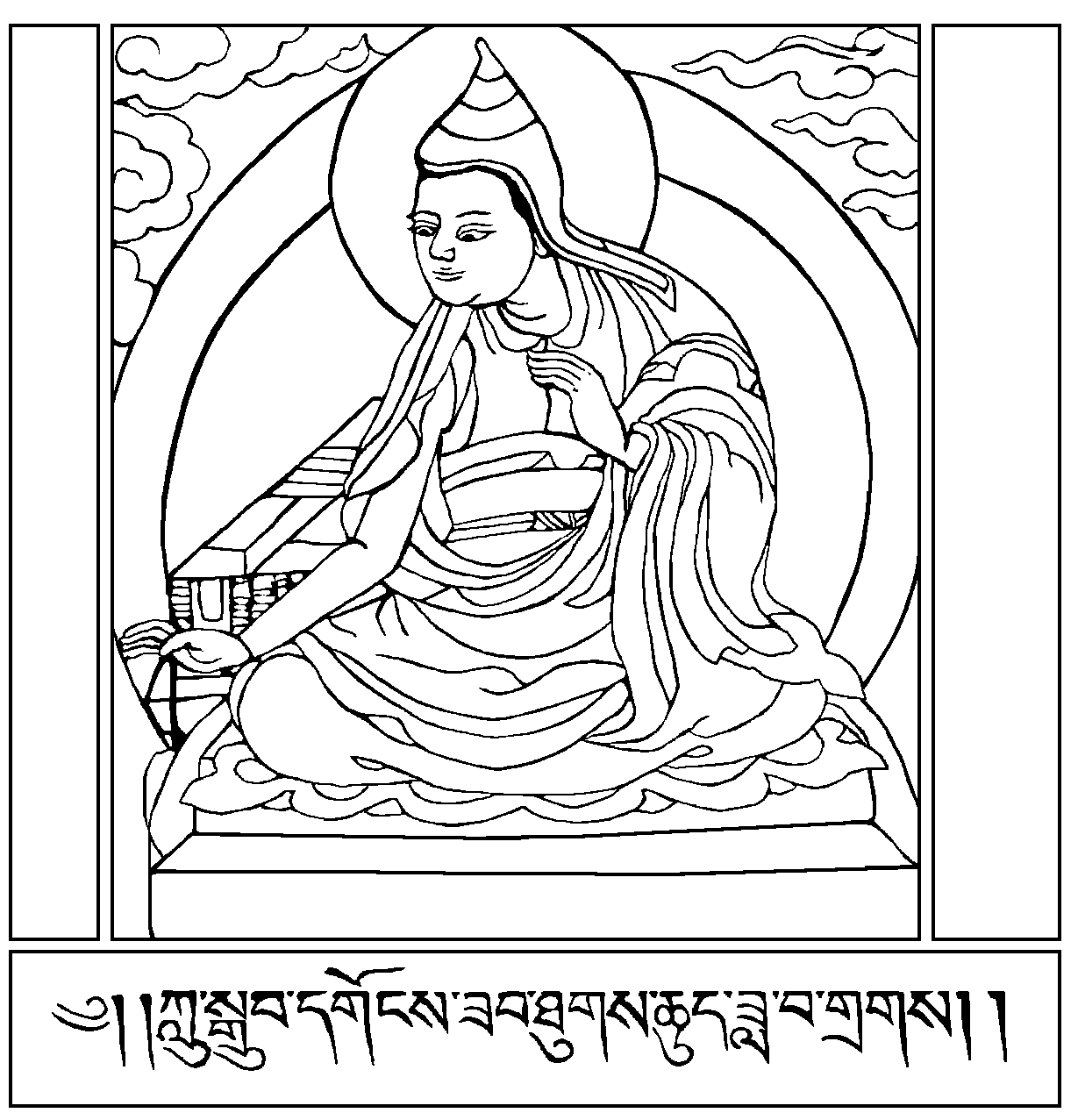
BS 203 | Philosophy of the Middle Way: Candrakīrti’s Madhyamakāvatāra
Available for Self-Study
ENROLLMENT OPTIONSCourse Description
Candrakīrti (600-660 CE) was a giant of Indian Madhyamaka (Middle Way) Buddhist philosophy. His commentary on Nāgārjuna’s Fundamenatal Verses on the Middle Way established the theoretical foundation of the Prāsangika Madhyamaka school, which came to be regarded in Tibet as the most sophisticated Buddhist system. He also composed important commentaries on other texts by Nāgārjuna and Āryadeva and wrote the monumental Madhyamakāvatāra (Introduction to the Middle Way), which is the subject of this course.
The Madhyamakāvatāra is the Indian Madhyamaka text most closely studied in Tibet. This text and its commentaries define the Prāsangika tradition in Tibet, and form the core of the monastic Madhyamaka curriculum. Debates about epistemology and metaphysics in Tibet are often framed as debates regarding how to interpret this text, which is universally taken to be authoritative. It sets out a vision of the bodhisattva path to liberation that integrates ethical and metaphysical themes, expressing profound philosophy in often beautiful poetry. This text is also an important prolegomenon to Śāntideva’s masterpiece, Bodhicāryāvatāra (How to Lead an Awakened Life).
In this course, we will read Candrakīrti’s text together, exploring his views about ethics, causality, emptiness, the two truths, and the status of persons in the conventional world. We will address his arguments and analyses informed by important Tibetan commentaries, and we will ask what this text has to teach us today.

Course Preview
Course Modules
Module 1 — Bodhicitta and the Bodhisattva Path
Module 2 — Proper Conduct and Patience
Module 3 — Commitment, Concentration, and a Preview of Wisdom
Module 4 — Refutation of Non-Mahāyāna Views and the Two Truths
Module 5 — Refutation of Yogācāra and Svātantrika
Module 6 — The Selflessness of the Person and the Higher Grounds
Students Will Receive:
- 6 Pre-recorded Video + Audio lectures (90 min)
- 6 Pre-recorded Q&A sessions (90 min)
- 5 ACP Credits
- 18 Hours of CE credit with YA
- Course Syllabus (PDF)
- Course Readings (PDF)
- 6 Multiple Choice Quizzes
- Yogic Studies Certificate (PDF)
- Access to Yogic Studies Community
Dr. Jay Garfield
Doris Silbert Professor in the Humanities and Professor of Philosophy, Logic and Buddhist Studies, Smith College
Jay L. Garfield chairs the Philosophy department and directs the Buddhist Studies Program and Tibetan Studies in India program at Smith College. He is also visiting professor of Buddhist philosophy at Harvard Divinity School, Professor of Philosophy at Melbourne University and Adjunct Professor of Philosophy at the Central Institute of Higher Tibetan Studies. Academicinfluence.com has identified him as one of the 50 most influential philosophers in the world over the past decade.
Garfield’s research addresses topics in the foundations of cognitive science and the philosophy of mind; metaphysics; the history of modern Indian philosophy; topics in ethics, epistemology and the philosophy of logic; the philosophy of the Scottish enlightenment methodology in cross-cultural interpretation; and topics in Buddhist philosophy, particularly Indo-Tibetan Madhyamaka and Yogācāra. He is the author or editor of over 30 books and nearly 200 articles, chapters, and reviews.
Garfield’s most recent books are Getting Over Ourselves: How to be a Person Without a Self (2022), Knowing Illusion: Bringing a Tibetan Debate into Contemporary Discourse (with the Yakherds 2021, Buddhist Ethics: A Philosophical Exploration (2021), ̛What Can’t Be Said: Paradox and Contradiction in East Asian Thought (with Yasuo Deguchi, Graham Priest, and Robert Sharf 2021), The Concealed Influence of Custom: Hume’s Treatise From the Inside Out (OUP 2019), Minds Without Fear: Philosophy in the Indian Renaissance (with Nalini Bhushan, 2017), Dignāga’s Investigation of the Percept: A Philosophical Legacy in India and Tibet (with Douglas Duckworth, David Eckel, John Powers, Yeshes Thabkhas and Sonam Thakchöe, 2016) Engaging Buddhism: Why it Matters to Philosophy (2015), Moonpaths: Ethics and Emptiness (with the Cowherds, 2015) and (edited, with Jan Westerhoff), Madhyamaka and Yogācāra: Allies or Rivals? (2015).

This course is eligible for 18 hours of Continued Education (CE) credits with Yoga Alliance

Stay Informed
Sign up for the Yogic Studies mailing list to find out first about upcoming courses, podcast episodes, promotions, events, and the latest research delivered straight to your inbox.

